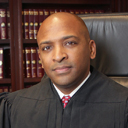"The panel's ruling is not just wrong, it is dangerously broad, carrying far-reaching implications for the administration of criminal justice. It effectively announces that the prosecution need not produce exculpatory or impeaching evidence so long as it's possible the defendant would've been convicted anyway. This will send a clear signal to prosecutors that, when a case is close, it's best to hide evidence helpful to the defense, as there will be a fair chance reviewing courts will look the other way, as happened here."
Or the prosecutor:
"Protecting the constitutional rights of the accused was just not very high on this prosecutor's list of priorities. The fact that a constitutional mandate elicits less diligence from a government lawyer than one's daily errands signifies a systemic problem: Some prosecutors don't care about Brady because courts don't make them care."
Ho hum.
At Judge Kopf's blog, he recommends having prosecutors turn over everything to the defense to make sure these complaints can't be lodged. I've never heard a good response to this proposal.
Some other notes:
- Albert Lichy, Judge Huck's former law clerk, wrote an op-ed in the DBR, titled: DOJ's Shift in Corporate Prosecutions: Too Big to Ignore. The conclusion:
A retreat of any degree from federal prosecutors' reliance on DPAs to resolve corporate criminal investigations would be utterly misguided. The risk of another Arthur Andersen-style collapse is much too high to justify any added measure of deterrence a criminal conviction offers. While many are quick to criticize the Justice Department for maintaining a de facto policy that some institutions are too big to jail or take to trial, few have offered a convincing argument for why the perceived benefit of a conviction outweighs its potential costs. Corporate defendants, unlike their individual counterparts, can't go to jail—however big or small. They don't suffer the same reputational harm as a branded criminal. Nor do they lose any fundamental constitutional rights. A conviction is purely symbolic. But in pursuing this symbolic gesture, prosecutors are needlessly creating the risk of emitting a systemic shock through the financial system—one that's too big to ignore.
The cautionary note Attorney General Eric Holder sounded in 2002 in arguing against the indictment of WorldCom is as appropriate today as it was then: "to ensure that even more innocent Americans are not harmed, prosecutors must not give in to the pressures of the day and feel compelled to indict more corporations simply because they can."
- Alyson Palmer is doing a great job covering the 11th Circuit appointment process. Here are recent articles here and here covering how the Judge Rosenbaum may be confirmed quickly and who is being interviewed for the open Alabama seat (Judge Dubina).
One last thing -- Thanks again to everyone for their kind words and emails over the past week. I really appreciate it.





